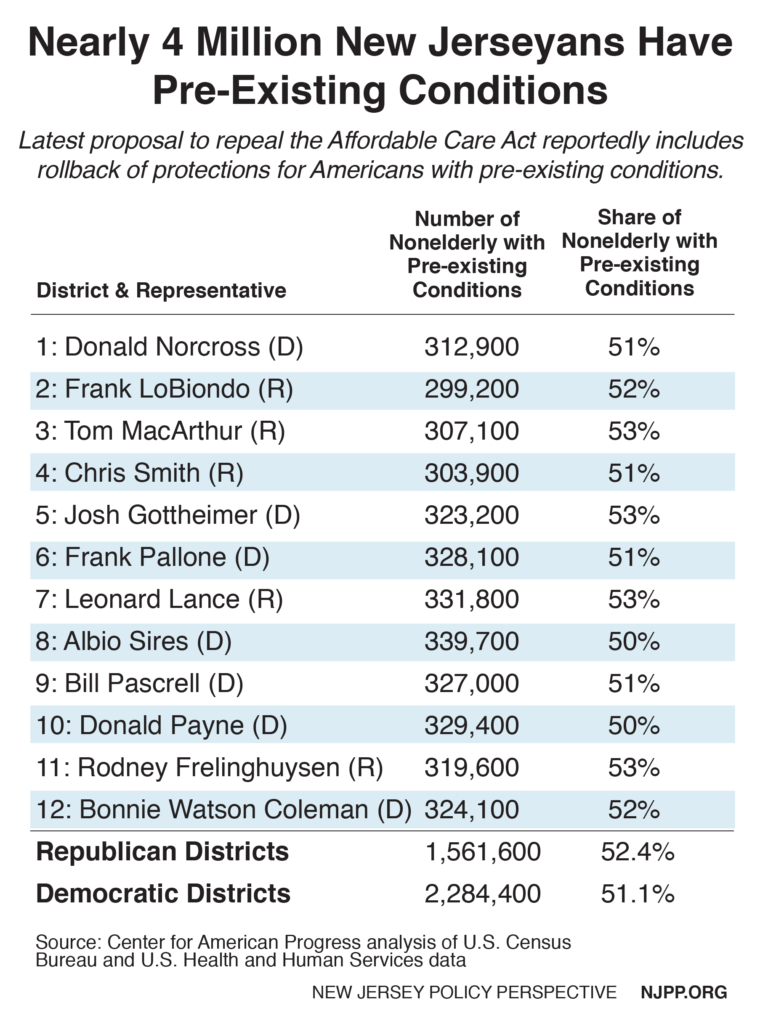While the latest Congressional Republican plan to repeal the Affordable Care Act is apparently dead (at least for the moment) as of yesterday, it has been reported that the proposal would have rolled back protections for the more than 130 million Americans – and 3.8 million New Jerseyans – who have a pre-existing health condition.
These New Jerseyans are found throughout the state, with hundreds of thousands in every Congressional District, according to a new analysis by the Center for American Progress (CAP).
In fact, a slightly higher share of Garden State residents in districts with Republican representatives (52.4 percent) have pre-existing health conditions than residents in districts with Democratic representatives (51.1 percent). And of the 3.8 million New Jerseyans total, nearly half a million (476,800) are children – including my own four-year-old son.
For more on the issue of coverage for Americans with pre-existing conditions, and what’s at risk, see an excerpt of the CAP report below the table.
From the CAP report:
“Republicans are now discussing a provision that is effectively a sick tax on premiums: People with health conditions would be charged multiples more based on their medical history, paying above-standard rates for coverage. Even if the new plan preserved the ACA’s rules on guaranteed issue—meaning that issuers cannot deny coverage—consumers with pre-existing conditions could still be priced out of the market.
Prior to the ACA, insurers could discriminate against consumers based on their current health conditions and medical history. Consumers with common ailments, including asthma and high blood pressure, were charged higher rates. People with histories of serious conditions, such as cancer or heart attacks, were regularly denied coverage altogether.
About half of nonelderly Americans have one or more pre-existing health conditions, according to a recent brief by the U.S. Department of Health and Human Services, or HHS, that examined the prevalence of conditions that would have resulted in higher rates, condition exclusions, or coverage denials before the ACA. Approximately 130 million nonelderly people have pre-existing conditions nationwide …
Nationally, the most common pre-existing conditions were high blood pressure (44 million people), behavioral health disorders (45 million people), high cholesterol (44 million people), asthma and chronic lung disease (34 million people), and osteoarthritis and other joint disorders (34 million people).
While people with Medicaid or employer-based plans would remain covered regardless of medical history, the repeal of pre-ex protections means that the millions with pre-existing conditions would face higher rates if they ever needed individual market coverage.”


